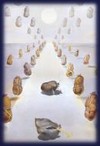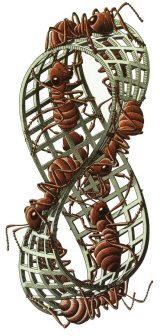 [en]
[en]
In the 21th century ideologies collapsed, religions are showing their fundamentalist and darker side and war is still the response to political problems. At the same time the material world itself is experiencing ecological collapse.
Virtual worlds such as Second Life and mirror worlds as Google Earth are the new frontiers of the Net. It seems as though we are making a backup of a devastated world on the Net, reshaping it according to our dreams and inhabiting it as if we could alienate ourselves from the material world.
[/en][it]
Nel ventunesimo secolo, assistiamo al crollo delle ideologie, le religioni stanno mostrando il loro lato fondamentalista e più oscuro, mentre la guerra è ancora la risposta a problemi politici. Al medesimo tempo, il pianeta sta vivendo il collasso ecologico.
I mondi virtuali come Second Life e i mondi specchio come Google Earth sono le nuove frontiere della Rete. Sembra che stiamo facendo la copia in Rete di un mondo devastato, modificandolo secondo i nostri desideri e abitandolo come se potessimo alienarci dal mondo materiale.
[/it]
Leggi tutto “Virtual worlds, mirror worlds, Second Life: backing up the messed planet”

